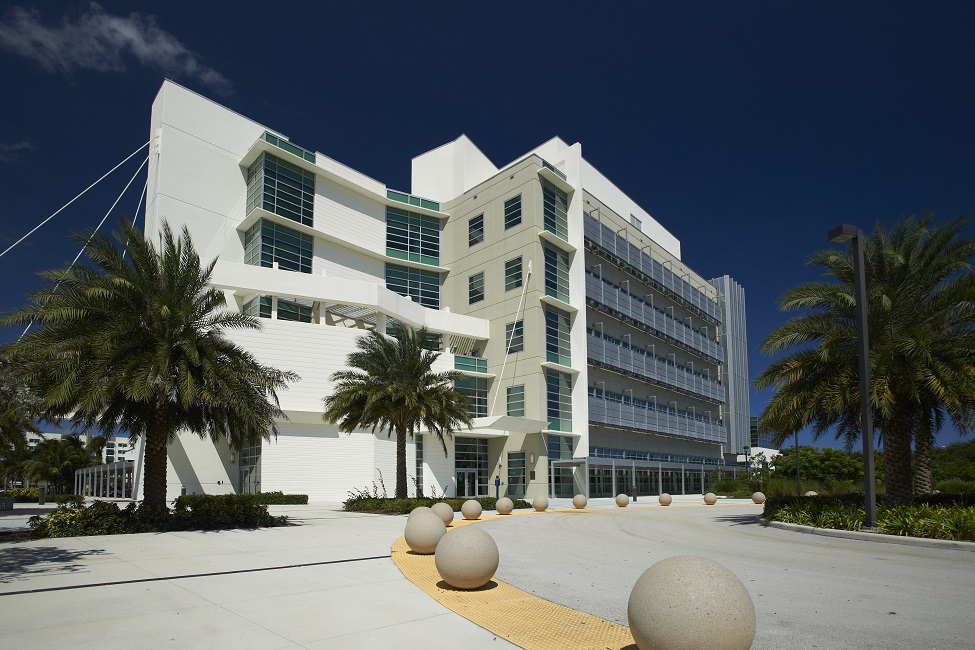FAU Launches Florida’s First Master of Science Degree in AI

This innovative degree program and training curriculum will educate students and train professionals to develop new skills for jobs that are not yet defined and be part of the first generation of an AI-and-autonomy workforce.
Artificial intelligence (AI) is transforming virtually every segment of industry in the United States from agriculture to medicine. To be competitive, companies will have to embrace AI to some extent, which will require a workforce educated and highly trained in this quickly growing field.
To address these needs, Florida Atlantic University’s College of Engineering and Computer Science is launching the state’s first Master of Science with Major in AI (MSAI), administered by its Department of Computer and Electrical Engineering and Computer Science. This degree will prepare students for careers in various education, government and industry positions that require AI skills.
“As we are experiencing the dawn of the fourth industrial revolution that is defined by AI and autonomy, our state and nation strive to lead the world in AI-and-autonomy-driven innovation. And, as there is hardly any industry that is not affected by AI and autonomy, industry investments on AI and autonomy are reaching very high levels,” said Stella Batalama, Ph.D., dean of FAU’s College of Engineering and Computer Science. “Our College of Engineering and Computer Science is engaging in convergence engineering and science research to provide AI, machine learning and autonomy solutions to problems critical for the state and the nation. Pedagogy driven by research and development in our college led to our Master of Science in Artificial Intelligence, which is the first such program in Florida. This innovative degree program and training curriculum will educate students and train professionals to develop new skills for jobs that are not yet defined and be part of the first generation of an AI-and-autonomy workforce.”
FAU’s MSAI program provides both thesis and non-thesis options and requires a minimum of 30 credits. Offered on FAU’s main campus in Boca Raton, the program includes a strong curriculum that consists of AI theory, methods and technologies, combined with major subfields of vision, data analytics and algorithms, knowledge management and reasoning, machine learning, and applications. The program’s graduate-level coursework will enable its graduates to enter Florida’s workforce with the capabilities needed to fill emerging needs. Students also will have laboratory training and access to state-of-the-art facilities, including FAU’s recently launched Artificial Intelligence and Deep Learning Laboratory, which is Florida’s first NSF-funded laboratory that serves as a training platform to support graduate student teaching and research.
“Students in our Master of Science in Artificial Intelligence program will understand how AI works by combining data with fast, iterative processing and intelligent algorithms, allowing the software to learn from patterns or features of the data,” said Mihaela Cardei, Ph.D., associate dean for graduate studies and a professor in FAU’s Department of Computer and Electrical Engineering and Computer Science. “With our innovative curriculum, students will have a broad understanding of the theories, methods and technologies that provide the foundation of AI and will be able to take courses in major areas of specialty and applications in this field.”
Potential jobs within the AI field include political data scientists, survey statisticians, research analysts, intelligence data analysts, quantitative social scientists, software engineers, research analysts, and solution architects, among others. The median hourly regional and statewide earnings in the five most common occupations for master’s-level AI professionals exceeds the median hourly earnings across all occupations in Florida. For example, computer and information research scientists earn a median of $51.25 an hour regionally, and $46.05 an hour statewide. Comparatively, workers in Florida earn a median hourly income of $16.07 per hour across all occupations. The potential for high earnings with a high return on investment will attract prospective students locally, regionally and nationally to FAU’s MSAI program.
“The new Master of Science with Major in Artificial Intelligence degree offered by our College of Engineering and Computer Science aligns well with Florida Atlantic University’s vision to provide outstanding graduate education and high quality programs in areas of strategic emphasis such as applied AI and big data analytics,” said Bret Danilowicz, Ph.D., FAU provost and vice president for academic affairs. “This new program also will support our university-wide research pillars that include healthy aging, neuroscience, ocean and environmental science, and sensing and smart systems, which are expected to adopt AI methods and technologies to remain competitive.”
FAU’s MSAI program also will help to encourage minority and female students to pursue interests in the AI field. Currently, less than 10 percent of African-American, Hispanic and female students are involved in this field.
For the third year in a row, U.S. News & World Report recently included FAU on the list of the most ethnically diverse universities in the U.S. FAU’s “diversity index” score of .68 (out of 1.0) tied with 11 other institutions, including Princeton University and Carnegie Mellon University. This score makes FAU the highest ranked public university in Florida for diversity. In addition, in 2017, the U.S. Department of Education designated FAU as a Hispanic-serving Institution, only awarded to colleges and universities with enrollment of full-time Hispanic undergraduate students of at least 25 percent.
-FAU-
Tags: science | technology | students | engineering | faculty and staff | education | research